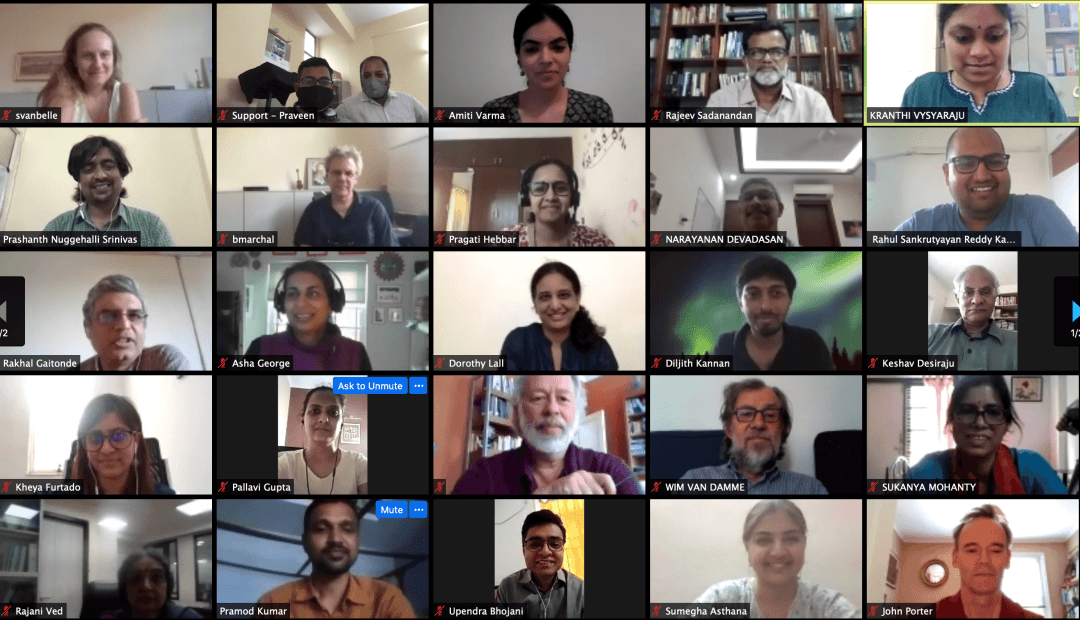Strengthening health systems requires a system thinking lens, an acknowledgement of complexity in bringing about transformational change as well as putting people at the center of change. Approaches that integrate these are often lacking due to limited capacity in public health research institutions and in the community to practice a health systems approach applying state-of-the-art public health and social science research methods. HSTP and IPH conceived the fellowship program to improve the capacity for health policy and systems research (HPSR) in India. Over the last few months, a team from both these organizations consulted Global and Indian HPSR experts to put together a draft fellowship program structure and curriculum. In June 2020, an expert consultation was held to review this early draft. Thirty HPSR practitioners from India and across the globe participated to review the program and provided their expert advice.
At the workshop, the HSTP-IPH team presented an overview and a draft curriculum of the proposed training program. All participants of the workshop were very encouraging of this initiative and reinforced the need for the training program to be contextually relevant to India. Experts advised regarding the design and structure of the course, content, teaching methods and the pedagogy of the training program.
Some of the key recommendations that emerged from the workshop include:
· Focus on the core competencies of HPSR – Complexity, Systems Thinking and Multi-disciplinarity
· Need for the participants to ‘unlearn’ the linear processes in their research disciplines and accept the non-linear approaches of HPSR
· Larger and focused emphasis on policy engagement including the skills to analyze policies, conduct a stakeholder analysis and the ability to engage with policy makers.
· Expand the content to include evaluations, secondary data analysis and evidence synthesis
· Detail out the mentorship phase and clarify the roles of the mentors.
· Use innovative teaching tools like Indian case studies, role play, group learning, simulations, and debates.
· Develop collaborations with other institutions
· Refine the process of participant selection. Researchers from different disciplines should be selected and even non researchers, including government officers, may be considered. Moving forward, the team will work with key HPSR experts and other actors in preparing a revised curriculum based on the discussions at the workshop. An action plan for the process of the redesign has been developed and includes the use of a conceptual framework consisting of key program elements, content, and pedagogy to identify the various comments and suggestions made at the workshop. The inputs from the workshop will be thematically analysed to identify categories of comments that need resolution. The team will redesign the curriculum based on this analysis across multiple levels of the proposed curriculum (content, mentorship, online teaching, and pedagogy. Key values and core competencies will be used as guidance to resolve recommendations that may be in opposition. This redesigned plan shall then be presented to a panel of HPSR experts to further refine the final curriculum.

















